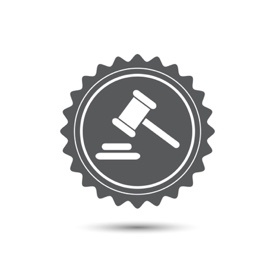 There are many types of Contractors Insurance to help protect your business in the event of a lawsuit. Insurance is a crucial part of protecting your business. According to Forbes, 36%-53% of small businesses are involved in at least one litigation in any given year, and 90% of all companies are engaged in litigation at any given time.
There are many types of Contractors Insurance to help protect your business in the event of a lawsuit. Insurance is a crucial part of protecting your business. According to Forbes, 36%-53% of small businesses are involved in at least one litigation in any given year, and 90% of all companies are engaged in litigation at any given time.
General liability insurance helps protect you if you are sued for injuries (other than employees), property damage, libel, and slander.
However, a customer can also sue you for making a mistake, missing a deadline, negligence, or undelivered services. Typically, general liability insurance does not cover this type of lawsuit.
As they say, “To err is human,” but unfortunately, while “to forgive is divine,” not everyone forgives when a general contractor makes a mistake – actual or perceived. And one lawsuit can cost you a fortune in legal fees and settlements or judgments (if the court sides with the plaintiff) or even put you out of business.
Thankfully, there is Professional Liability Insurance to help protect your business from this type of lawsuit.
What is Professional Liability Insurance?
Professional Liability Insurance goes by many names, such as Errors and Omissions and E & O insurance. Professional Liability Insurance protects your business if you face a lawsuit claiming you made a mistake in your professional services - whether or not you actually made a mistake.
Some local and state laws, contracts, or customers may require Professional Liability Insurance. However, even if it isn’t required, it’s a good investment as one lawsuit can put you out of business. According to an SBA study, small businesses reported that legal costs for litigation ranged from $3,000 to $150,000. Furthermore, “Most companies used business assets to pay the damages,” and “owners mentioned that the payment of damages nearly put them out of business, which affected them for a long period of time as they worked to rebuild the business and recoup their losses.”
Professional Liability Insurance helps protect your business from claims of the following nature:
- Errors
- Omissions
- Negligence
- Violation of good faith and fair dealing
- Misrepresentation
- Inaccurate advice
Professional Liability Insurance covers the following costs (up to the policy’s limit):
- Attorney fees
- Court costs
- Administrative costs
- Settlements or judgments
Professional Liability Insurance does NOT typically cover:
- Bodily injury
- Property damage
- Fraudulent, dishonest, or criminal acts
- False advertising
- Employee injuries or illnesses
- Discrimination or harassment
- False advertising
- Patents and trade secrets
- Any services not specified in your policy
How Much Does Personal Liability Insurance Cost?
Every business is unique, so the cost of Professional Liability Insurance varies.
Factors that can affect your Professional Liability Insurance costs include the following:
- Business size
- Location
- Claims history
- Coverage limits
You can help keep the cost of Professional Liability Insurance down by doing the following:
- Properly training employees
- Providing quality work
- Drafting well-crafted contracts that set expectations
- Fulfilling the terms of the contract
- Keeping schedules realistic
- Providing quality workmanship
- Hiring reliable and competent subcontractors
- Performing and documenting periodic inspections
- Keeping communication professional and reasonable
- Ensuring everyone working on the project is adequately insured
How to Save on Professional Liability Insurance
If you aren’t sure if you need Professional Liability Insurance, reach out to one of the agents at American Insuring Group who specialize in Contractors Insurance.
We understand your unique needs and can help ensure you have the right coverage. As independent agents, we will compare the cost of that coverage with several insurance companies to ensure that you pay the lowest premium for that coverage.
So start saving today by calling us at (800) 947-1270 or (610) 775-3848, or connect with us online.



 Every business in Pennsylvania with one or more employees is required to provide
Every business in Pennsylvania with one or more employees is required to provide  Litigation is like lightening; it can never be accurately predicted. So, the best defense against both is to avoid them altogether. While it’s possible to seek shelter and stay out of harm’s way during a storm, avoiding a professional liability lawsuit can be much more complicated.
Litigation is like lightening; it can never be accurately predicted. So, the best defense against both is to avoid them altogether. While it’s possible to seek shelter and stay out of harm’s way during a storm, avoiding a professional liability lawsuit can be much more complicated. To learn more about Professional Liability Insurance, which helps you pay for the cost of lawsuits and other expenses for which you are legally responsible, and for all your
To learn more about Professional Liability Insurance, which helps you pay for the cost of lawsuits and other expenses for which you are legally responsible, and for all your 



